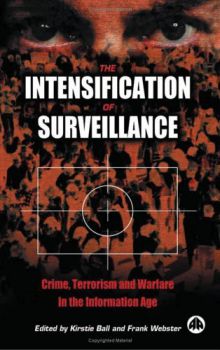
A tightly themed and edited collection on "surveillance" - as intelligence-gathering, as a component in strategies of social control and as a socio-technical system that is increasingly impacting on every aspect of our lives - through the intrusion of overt and covert surveillance in virtually every public and private sphere, whether criminal or civil. The contributors to this volume ask what this intensification of surveillance means, how we benefit and what we might lose. How do we track suspects, define risks, combat crime without also, possibly, eroding our civil liberties and sacrificing our rights to privacy? What are the issues, the threats and the opportunities? The contributors to this volume seek to map out the dimensions of the problem and to offer a strategy for monitoring future developments.